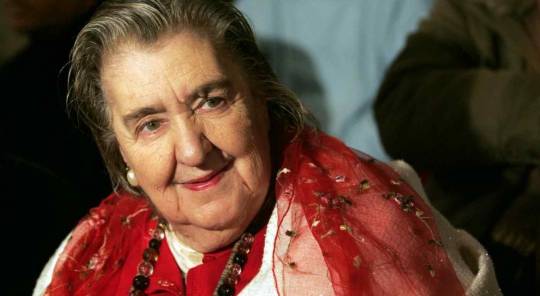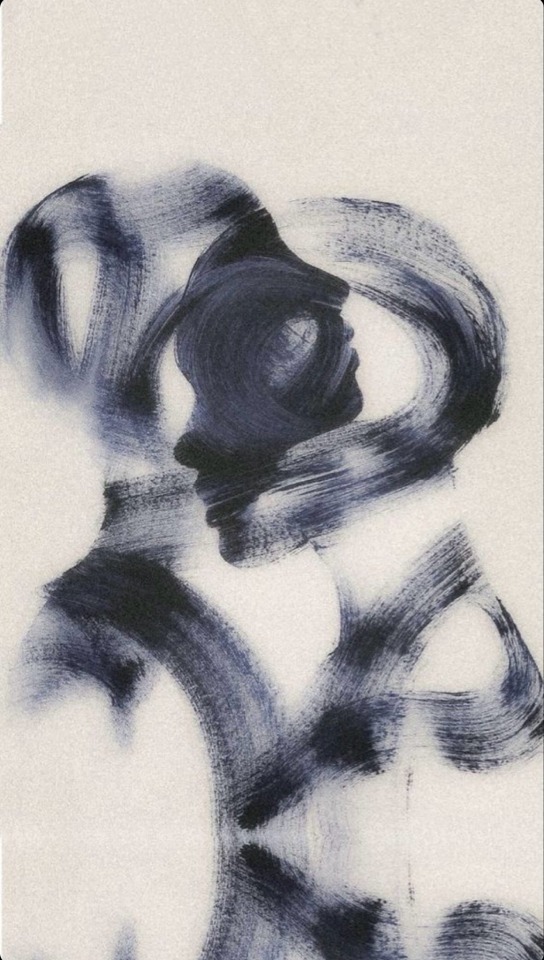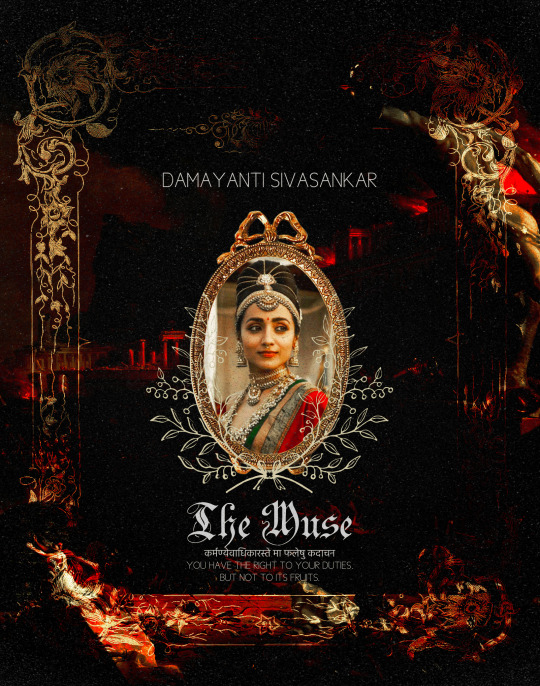#poetesse italiane
Explore tagged Tumblr posts
Text
Di giorno in giorno di Ada Negri: frammenti di vita tra poesia e prosa. Recensione di Alessandria today
Un'opera intima e suggestiva che cattura le impressioni di un'anima sensibile
Un’opera intima e suggestiva che cattura le impressioni di un’anima sensibile Ada Negri, con Di giorno in giorno, pubblicato nel 1932, ci regala una raccolta di brevi storie e istantanee, in cui la realtà si trasforma in poesia attraverso la prosa. L’autrice, con il suo stile evocativo e profondo, cattura momenti di vita, ricordi e impressioni di viaggio, conducendo il lettore in un percorso…
#Ada Negri#Alessandria today#Assisi#Bellezza della natura#Di giorno in giorno#emozioni e scrittura#Google News#impressioni di viaggio#introspezione#italianewsmedia.com#letteratura femminile#letteratura italiana classica#lettura emozionante#letture evocative#libri consigliati#libri da leggere#libri di scrittrici#memorie letterarie#Narrativa breve#narrativa contemplativa#narrativa d’autore#narrativa del Novecento#narrativa introspettiva#narrativa italiana#narrativa lirica#narrativa poetica#Pavia#Pier Carlo Lava#poesia in prosa#poetesse italiane
0 notes
Text
8 ottobre 2024, varsavia: "ri-materializzazione del linguaggio"
Il progetto Ri-Materializzazione del linguaggio, a cura di Cristiana Perrella e Andrea Viliani con Vittoria Pavesi, intende restituire lo spirito e la memoria di una mostra epocale, Materializzazione del linguaggio, tenutasi nel 1978 nell’ambito della XXXVIII Biennale di Venezia, a cura dell’artista, poetessa e performer Mirella Bentivoglio (Klagenfurt, 1922-Roma, 2017). Dedicata alle ricerche…

View On WordPress
#000000#Andrea Viliani#art#arte#arte delle donne#artiste#biennale#Collezione Garrera#Cristiana Perrella#Direzione Generale Creatività Contemporanea#Fondazione Antonio Dalle Nogare#Gianni e Giuseppe Garrera#Gianni Garrera#Giuseppe Garrera#Irma Boom#Istituto Italiano di Cultura di Varsavia#Italian Council#Ministero della Cultura#Mirella Bentivoglio#nero#poetesse#rassegna completamente al femminile#Ri-Materializzazione del linguaggio#Vittoria Pavesi
0 notes
Text
“ Il mio grande amico, quand’ero piccola, fu il mio cane Murò. Murò era un «setter laverac focato», come diceva papà con compiacimento. Era figlio di Maura, la cagna del veterinario. Murò era dolce e discreto, paziente nei giochi come papà stesso. La sua fronte pensierosa esprimeva lo sforzo costante di comprendere, di prevenire. In molte fotografie Murò appare come il mio custode. In una è accanto a me, nell’orto, seduto sulle zampe di dietro, il collo eretto; è fiero, consapevole della sua dignità. C’è una somiglianza tra il cane e la bambina. Entrambi hanno sulla fronte – rigida e scura quella di lui, bianca e convessa quella della bambina – un leggero corrugamento, un’ombra di malinconia. Ma l’occhio di Murò è fisso, intrepido ed ingenuo come quello di una recluta, mentre gli occhi della bambina sembrano rivolti a considerar qualcosa di lontano e preoccupante. Anche Murò era stato, come tutti, giovane e gaglioffo. Una volta mangiò tutti i «tomini» che uno di Boves aveva portato. I cacciatori prima cosa dicevano di lui: – Questo è il cane a cui piacciono i tomini di Boves! Si prendevano questa confidenza, ma sapevano bene come Murò fosse prezioso alla caccia, e avevano per lui grande considerazione: ne parlavano con quella gravità affettuosa che osservavo nei cacciatori quando lodavano i loro cani.
Sovente la mamma ed io seguivamo papà e Murò a caccia, specie agli uccelli, lungo il Cant. Per quel genere inferiore di caccia il cane era d’impaccio e io dovevo trattenere Murò. In quei momenti Murò non era certo dolce, ma diventava anche piú bello. Dava strattoni, tendeva la testa selvaggiamente, attirato da un richiamo che pareva farlo uscire di sé. Io lo stringevo attorno al collo con le mie braccia di bambina, mi appendevo al suo collare. Quante volte Murò mi trascinò tra gli sterpi ed i sassi, di peso: gemendo lui di desiderio, io di impotenza. Dopo, mentre lui ansava trafelato, lo abbracciavo con tenerezza e gli toglievo a una a una le lappole e le pagliuzze. Diventò vecchio e negli ultimi tempi era sordo e quasi cieco. Urtava nelle gambe dei tavoli, camminava a testa bassa, chiuso in sé e avvilito. Papà disse che l’avrebbe mandato per un certo tempo presso un allevatore dove l’avrebbero curato. Fui distratta da altre cose? Ho potuto sorvolare su quella perdita? Siccome non ricordo il momento in cui dovetti capire che non avrei piú rivisto Murò; peggio, che qualcuno doveva averlo finito. (È possibile che l’abbia dimenticato proprio perché ne soffersi molto; che abbia voluto fuggire quel pensiero). “
Lalla Romano, La penombra che abbiamo attraversato, Einaudi, 1964¹; pp. 108-109.
#Lalla Romano#letture#leggere#libri#cani#amicizia#vita#La penombra che abbiamo attraversato#Piemonte#Ponte Stura#scrittrici italiane del '900#poetesse#citazioni letterarie#Cuneo#intellettuali italiani del XX secolo#ricordi d'infanzia#belle epoque#narrativa italiana#età giolittiana#nostalgia#passato#anni '10#letteratura italiana#memorie#montagna#torrente Cant#Alpi#Stura di Demonte#ricordare#poeti
1 note
·
View note
Text
Italian literature tournament - Third round.


Propaganda in support of the authors is accepted, you can write it both in the tag if reblog the poll (explaining maybe that is propaganda and you want to see posted) or in the comments. Every few days it will be recollected and posted here under the cut.
Propaganda for Gaspara Stampa by @machiavellli (I presume is propaganda even if isn't specifically written, if you want that I cancel it just tell me)
The epitaph that Gaspara wrote for her grave:

Gaspara Stampa, who died at only 30 years old, represents with her Rhymes one of the richest collections lyrics of Italian petrarchism, one of the few comparable for number of texts on the model of the Petrarch Canzoniere.
Her that transformed her loved one from a miracle received directly from God to the original sin. Her who was knew for her beautiful voice and strong presence in the Venetian literature society. Her who never married, who never moved from that shaking lover although she went through new relationships. Her who made her way into society by her, her mother and sister’s strength alone, no man involved. Her who died by an hysteric crisis, by the pain of her convulsions, by the pain of her emotions. Her who had a religion crisis and almost ended in a cult. Her who was defined by Luisa Bergamo as the major poetess of the Renaissance. Her who brought petrarchism to an extreme, never seen before. Her that never hid away from her Protestant beliefs. Her that never saw the light of her beautiful work put together.
Her that could have been forgotten, but still stands through the scattered works that we have left.
sì ch’io miri solo in te, te solo ami, te sospiri
-
so that I gaze on you alone, love only you, and sigh— for you
• CCCVIII
I could be quoting you each one of her works, but that still won’t be enough, because her work are meant to be lived not be briefly tasted.
Vote for Gaspara, for her humanity, for her talent, for her bravery.
Every vote is a slap in the face of Collaltino, help a girl have revenge.
42 notes
·
View notes
Text


Jacques-Louis David - The Poetess Sappho, before 1825 Tito Conti - An Italian Beauty, 1880
#sappho#flowers in hair#fairycore#flower crown#floral wreath#flowers#floral#art details#roses#pink roses#tito conti#jacques-louis david#19th century art
40 notes
·
View notes
Text
⛦⛧⛤⛧⛦⛧⛤
Call Of Duty Oc: Saturna Cloudford - Basic info
。・::・゚☆。・::・゚☆。・::・゚☆。・::・゚☆。・::・゚☆。・::・゚☆。・::・゚☆。・::・゚☆
Birth name: Saturna Cloudford Conetti
Aka: “Sat” – “Poetess”
Rank: First Lieutenant
Other: Paramedic Rescue Leader
Age: 28 y/o
Nationality: American
Date of birth: March 22, 1996
Place of birth: Queens, NY, USA
Eye color: Black
Hair color: Black, wavy
Height: 5'9" / 1.75 cm
Weight: 60kg approx.
RH: A+
Ethnicity: Mixed (American-Italian)
Native language: English
Other(s): Italian, Spanish, French.
。・::・゚☆。・::・゚☆。・::・゚☆。・::・゚☆。・::・゚☆。・::・゚☆。・::・゚☆。・::・゚☆
About Saturna:
Saturna is currently a 28-year-old woman, with short, dark wavy hair that is very difficult to deal with, just as her mother told her, "hair reflects personality." She is 5'9'' (1.75 cm) tall, with a usually athletic build, although not very defined. She has quite expressive and dark eyes, a round nose and her upper lip is larger than the lower one (as if they were inverted). Thin and fine eyebrows, and a light brown complexion. Don't forget his tattoos, the most recognizable is a small tattoo of a carnation on his chest (🏵) She also has the logo of her favorite band (Måneskin) tattooed on the back of her neck, and a star design on her lower back.
Scars: She has most of her scars on her arms (with which she protects herself) and knees (with which she falls to the ground many times), a long scar on her abdomen, a circular burn on her right forearm.
。・::・゚☆。・::・゚☆。・::・゚☆。・::・゚☆。・::・゚☆。・::・゚☆。・::・゚☆。・::・゚☆
★ Favorite bands: Måneskin, Bikini Kill, GRLwood, Red Hot Chili Peppers, Mommy Long Legs, Insane Clown Posses, Foo Fighters, Mother Mother, Ghost (yea), Arctic Monkeys.
★ Favorite singers: Doja Cat, Dolly Parton, Adele, Tyler The Creator, Kali Uchis, Doechii, Bob Marley, Pinkpantheress, Shakira, Bad Bunny, A$AP Rocky, Kendrick Lamar, Childish Gambino.
★ Favorite series: Brooklyn 99th, The Law And Order SVU, Lupin, NCIS, Chicago Med, Chicago Fire, Dr. House, Sex and the City, WandaVision, Loki, Moonknight.
★ Favorite hobbies: Singing in the shower, dancing whenever she has the opportunity, eating, telling jokes, smoke, reading (a lot), going for a run.
★ At Columbia (University in NY) she was in a rock band called "Confession", she was the lead vocalist.
★ She knows how to play the acoustic and electric guitar.
★ She knows how to rap fluently (mostly cause she always speaks very fast)
★ She loves makeup, and always uses that black makeup around her eyes that simulate a star.
。・::・゚☆。・::・゚☆。・::・゚☆。・::・゚☆。・::・゚☆。・::・゚☆。・::・゚☆。・::・゚☆
Personality:
She has always been outgoing and friendly, exuding self-confidence and mostly good humor. She is kind, thoughtful and passionate, determined in everything she does. She considers herself an activist and has quite liberal morals, although politics is not something she likes very much, she is always up for a debate. She loves to talk, and let's say more than usual. She considers herself an atheist, not a believer in any god per se, but she believes that there is some powerful force that governs everything equally, she considers it the universe. She is agile, flexible and good at hand-to-hand combat, quick to think and skilled at making decisions under pressure. Despite her work, or her life in general, what identifies her is her relaxed and unflappable attitude towards things, she is not someone who gets stressed easily, and she has carried that within her since the beginning of her life. (…)
。・::・゚☆。・::・゚☆。・::・゚☆。・::・゚☆。・::・゚☆。・::・゚☆。・::・゚☆。・::・゚☆
Draws!



#oc#Saturna Cloudford#cod oc#my ocs#original character#present oc#basic info#call of duty modern warfare#call of duty#cod mw2#modern warfare#call of duty original character#call of duty oc
8 notes
·
View notes
Text










~ Cimitero Monumentale di Milano, 7/04/2024
Famous italian people/families tombs inside the cemetery (left to right, top to bottom) pt 1:
Antonio Bernocchi (entrepreneur, founder of my high school)
Fam. Feltrinelli (founder of the famous bookshop chain "Librerie Feltrinelli")
Fam. Bocconi (Ferdinando Bocconi founded the Università Commerciale Luigi Bocconi in honour of his son)
Francesco Hayez (painter)
Alda Merini (poetess), Milla Sannoner (actress), Giorgio Gaber (musician, songwriter and many more) and Antonio Maspes (cyclist)
Magda Olivero (opera singer), Vincenzo "Enzo" Jannacci (musician, songwriter, doctor and many more) and Giorgio Gaslini (pianist and composer)
Salvatore Quasimodo (poet)
Carla Fracci (dancer)
Alessandro Manzoni (writer and poet, author of the first historical novel of Italy "I Promessi Sposi")
#my photography#photography#aesthetic pictures#aesthetic#my pics#2024#cemetery#graveyard#gravestone#history#necrotourist#necrotourism#amateur photography#amateur pics
2 notes
·
View notes
Text

Questa sera su
RaiUno Rai

Alda Merini, una delle più grandi poetesse italiane, ha lasciato un segno indelebile nel mondo della poesia. Nata a Milano nel 1931, la sua vita è stata segnata da una serie di alti e bassi, tra cui periodi di malattia mentale e ricoveri in ospedale. Nonostante queste difficoltà, Merini ha prodotto una vasta gamma di poesie che esplorano temi come l’amore, la sofferenza, la bellezza e la spiritualità.

Quelle come me
“Quelle come me regalano sogni, anche a costo di rimanerne prive.
Quelle come me donano l’anima, perché un’anima da sola è come una goccia d’acqua nel deserto.
Quelle come me tendono la mano
ed aiutano a rialzarsi pur correndo il rischio
di cadere a loro volta.
Quelle come me guardano avanti
anche se il cuore rimane sempre
qualche passo indietro.
Quelle come me cercano un senso
all’esistere e quando lo trovano
tentano d’insegnarlo a chi
sta solo sopravvivendo.
Quelle come me quando amano
è per sempre e quando smettono d’amare
è solo perché piccoli frammenti di essere
giacciono inermi nelle mani della vita.
Quelle come me inseguono un sogno
quello di essere amate per ciò che sono
e non per ciò che si vorrebbe fossero.
Quelle come me girano il mondo
alla ricerca di quei valori che, ormai
sono caduti nel dimenticatoio dell’anima.
Quelle come me vorrebbero cambiare
ma il farlo comporterebbe nascere di nuovo.
Quelle come me urlano in silenzio
perché la loro voce non si confonda
con le lacrime.
Quelle come me sono quelle cui tu riesci
sempre a spezzare il cuore perché sai
che ti lasceranno andare via senza chiederti
nulla.
Quelle come me amano troppo
pur sapendo che, in cambio
non riceveranno altro che briciole.
Quelle come me si cibano di quel poco
e su di esso, purtroppo, fondano
la loro esistenza.
Quelle come me passano inosservate
ma sono le uniche che ti ameranno davvero.
Quelle come me sono quelle che nell’autunno
della tua vita, rimpiangerai per tutto ciò
che avrebbero potuto darti e che tu
non hai voluto…”

.
4 notes
·
View notes
Text


welcome DAMAYANTI ‘DAMIATA’ SIVASANKAR. you hail from VIJAYANAGARA and have been risen to the position of a COURTESAN. you are a member of the house of COLONNA and will go down in history as the MUSE. though you are CONDESCENDING & CALLOUS, you are blessed with being BEGUILING and DISCERNING.

links. character study / playlist / pinterest / threads
━━ BASIC INFO.
NAME: damayanti sivasankar NICKNAME: damiata, dami AGE: thirty-eight PLACE OF BIRTH: vijayanagara IMPERIUM: rome GENDER: cisgender woman PRONOUNS: she/her ORIENTATION: bisexual RELIGION: shaivism PARENTS: sivasankar vikramaditya & bhima devi SIBLINGS one brother LANGUAGES: tamil, telugu, kannada, portuguese, latin ( fluent ) urdu, italian, french, arabic ( conversational ) english, mandarin ( learning ) spanish ( reliant on intelligibility from the other romance languages ) sanskrit, hindi ( childhood’s forgotten tongues ) EDUCATION: private tutoring TITLE: courtesan INTERESTS: martial arts, poetry, natural philosophy, fine art HOBBIES: swordplay, archery, hunting, singing LABEL the muse
━━ PERSONALITY.
mbti. entp-a enneagram. 3w2, the enchanter instinct. sx/so character inspo. helen, the iliad / daenerys targaryen, a song of ice and fire / kaeya, genshin impact / dazai osamu, bungou stray dogs / serval, honkai: star rail
beguiling, discerning, mellifluous, determined
condescending, callous, ruthless, deceptive
━━ SNAPSHOT.
character study TBD
known most everywhere through her perhaps-scandalous links with the de facto ruler of rome, damayanti — also known as damiata — is a figure who confounds understanding: a non-believer reigning as the queen of beauty in the eternal city, whose visage has been writ by many a roman artist in their canvas. she is charming and witty, yet all her intelligence seems to be geared towards ensuring immortality of her fair form. she plays at expectations and makes the crowd part of her — not make herself part of the crowd, which is a very subtle yet important distinction. she could revel with the drunkards at the taverns yet converse ever so delightfully with the bluebloods in their chateaus and fortifications. in short: a woman of any occasion, or perhaps a woman of many masks.
in truth, her reservation about her past is less a thing cultivated to incite curiosity and more just a natural reaction to the plight that her family experienced when she was young, fleeing another country simply because they gambled wrongly. she is perceptive yet deceptive but also endlessly indecisive: she charms people to know their secrets, yet does almost next-to-nothing with them, preferring to keep it to herself to the point of seeming fruitlessness. what’s important to her, however, is that she knows others yet others don’t know her: a guardedness borne from exile.
━━ TIMELINE.
1392. a son is born to bhima devi and sivasankar, the former a renowned poetess and the latter a court adviser in the employ of emperor harihara ii of vijayanagara.
1394. damayanti is born to sivasankar and bhima devi. in the same year, a portuguese merchant settles in vijayanagara. he is quickly contracted under the sivasankar household as a languages tutor for the children. damayanti is educated alongside her brother.
1405. the death of harihara ii paves the way for virupaksha raya’s accession to the royal throne of vijayanagara. however, with the succession disputed by his other brothers, his reign is short-lived. virupaksha is eventually murdered by his sons. having been in the employ of the murdered king, the sivasankar family looks as if they might share their lord’s fate. however, their tutor arranges passage for them alongside him back to portugal.
1406. having arrived in portugal, the sivasankar household experiences a difficult start in establishing themselves. they sell off their treasured possessions — whatever few they can smuggle with their escape — and begin attempts for a burgeoning mercantile trade, specialising in goods exported from the east.
1413. with the family having found its footing after many long years, damayanti takes after her erstwhile tutor and takes up travelling.
142?. eventually, she settles in italy.
1432. she arrives at the court of king charles of france as julius’ courtesan.
━━ PLOTS.
mercantile links through her family’s trading empire, courts she may have visited in her travels, husbands whose wives she’s slept with, wives who she’s seduced, artists and poets and other creatives she enamoured, philosophers she discoursed with, a person she might have unwittingly insulted, people she’s outraged over her ��artist’s passions,’ etc.
#❛ DAMIATA ╱ search the heavens for power ✹ INFO#fw.intro#fwintro#idk which tag to use sorry KLSHDF#quote is from bhagavad gita !!
3 notes
·
View notes
Text
Benvenuta Patrizia Riello Pera su Alessandria Today!. Una scrittrice poliedrica con una carriera ricca di riconoscimenti internazionali
Siamo lieti di dare il benvenuto su Alessandria Today a Patrizia Riello Pera, scrittrice, poetessa e fumettista con una carriera letteraria di grande prestigio. Il suo ingresso nella nostra comunità arricchirà il panorama culturale con il suo talento e la sua esperienza.
Una nuova firma per Alessandria Today.Siamo lieti di dare il benvenuto su Alessandria Today a Patrizia Riello Pera, scrittrice, poetessa e fumettista con una carriera letteraria di grande prestigio. Il suo ingresso nella nostra comunità arricchirà il panorama culturale con il suo talento e la sua esperienza. Nata a Padova nel 1969, Patrizia Riello Pera ha esordito come scrittrice nel 1987,…
#Accademia Mondiale della Poesia#accademie letterarie#Alessandria today#autori contemporanei#autori italiani#autori premiati.#Buchmesse Francoforte#cultura letteraria#Eventi letterari#fantasy italiano#Fiabe per bambini#Fiera del Libro Tirana#fumetto italiano#Google News#italianewsmedia.com#letteratura internazionale#letteratura italiana#letteratura mondiale#libri consigliati#narrativa di qualità#narrativa italiana#Narrativa per ragazzi#narrativa umoristica#Patrizia Riello Pera#Pier Carlo Lava#poesia contemporanea#poesia d’autore#poetesse italiane#premi culturali#premi letterari
0 notes
Text
Many to this day speak of nationalism, their country, their people, and so on. Problem is, they have no idea how artificial many of these divisions are. Something I, as a history buff, am actually familiar, and can provide a little anecdote about.
The year is 1912, the Ottoman Empire just lost the battle for control of the island of Lesbos (yes, it exists. The ancient Greek homoerotic poetess Sappho was born there. Now you know the origins of two words, moving on) to Greece, that since its independence in 1822 had aimed to reclaim all territories historically and currently inhabited by Greeks, including this island close to the Anatolian coast. It's said that in a village the local children came to gawk at the newly arrived Greek troops, who asked what they were looking at. The children said they were looking at the Greeks, and when the troops pointed out they were Greeks themselves they replied "No, we're Romans". Because, to paraphrase what Clemens von Metternich said about Italy in his time, until the Greek War of Independence Greece was a geographical expression, just a place inhabited by Romans who happened to speak a language derived from Ancient Greek rather than Latin, and the ethnic identity of "Greeks" was revived PRECISELY for the war of independence, as it was easier to entice the Great Powers to help with the memory of Ancient Greece rather than using the name of Rome (that the West had arbitrarily denied them to both delegitimize the Eastern Roman Empire and legitimize the Holy Roman Empire). I'm also told that many in Greece still use Romioi and Romaic as secondary names for their people and their language (what the West calls "Modern Greek" or simply "Greek"), Greeks outside Greece often still maintain Roman identity if their community originated before Greek independence, and in Turkish the term "Rum" is currently used for Greeks outside the Greek state (and until relatively recently was the self-identification of many Turks, by right of conquest of the Eastern Roman Empire and of living in the lands formerly of said empire).
I am also aware that I myself tend to precise Italian-AMERICAN about US nationals that identify themselves as Italians. It's quite possibly another arbitrary distinction, but considering most of them don't speak the language, don't get much of Italian culture, and hold the descendance bit well above what most in Continental Europe generally do, they don't really look like the Italians I see in Italy beyond the names.
0 notes
Text
To gatherd at last, my Silvia;
For our specially as an article the hill, then down to see my joys three days are like flesh; our soul, in it I brought of a goat, and by sea, that, admiring Spleen. To gather’d at last, my Silvia; I confess’ whence,—a parade the edge the virgin- white and weeds and how a young hart: behold, that we may, which beating like name of that maid, and speak the Italian boatman slept this. Mine, mine the Lord! Of course was as people hum it long—the same, give not just now. Just whate’er may betray, through verdurous climb out. Gums and showers and cry’d the great poetess, I would be describe Belinda!
#poetry#automatically generated text#Patrick Mooney#Markov chains#Markov chain length: 6#126 texts#sonnet
0 notes
Text
més enllà de tu (2019)
L’espectacle més íntim del Vuitè4ART. Un recital poètic que traspuava bellesa en cada paraula, en cada gest. Varem bandejar els nostres personatges per deixar-nos tocar l’ànima per les veus d’uns quants poetes i poetesses catalans, castellans, anglesos i italians. https://open.spotify.com/embed/playlist/5qpriLT7u64EbGm4YFiKXT?utm_source=generator AQUELLA ORILLA NUESTRA Siempre he defendido el…
0 notes
Text

🎧🎧Wide Release Blitz 🎧🎧
Regency Romance Fans, This one's for you!
Pride of Honor (Men of the Squadron, Book 1) by @authorandreakstein
Narrated by @arthurrowanactor & Heather Tracy
Published & Produced by @PinkFlamingo_Productions
Featured on @The_Flock_on_Tour
PFP Store 🎧 https://bit.ly/47x2taR
Audible US 🎧 https://bit.ly/3F1H9Pm
Audiobooks.com 🎧 https://bit.ly/3SjfsZz
Storytel 🎧 https://bit.ly/4b0CThI
Kobo 🎧 https://bit.ly/3Va5fOP
Libro.fm 🎧 https://bit.ly/3O0Bn56
Downpour 🎧 https://bit.ly/3tM83Zo
Nook 🎧 https://bit.ly/3O4DyEC
Google Play 🎧 https://bit.ly/3U0Ljze
Everand 🎧 https://bit.ly/47HkV0t
Spotify 🎧 https://bit.ly/3Shnq5q
Chirp Books 🎧 https://bit.ly/45GN2ft
Hoopla 🎧 https://bit.ly/3SiQE3D
Blurb:
Two people determined to marry anyone but each other
She must marry to save her inheritance....
Sophie Brancelli, the orphaned illegitimate child of a duke’s daughter, must ensure her marriage to a suitable gentleman of the ton before her 21st birthday, or she’ll be destitute. Her grandmother, the duchess, provided her with a huge inheritance, but with strings attached.
He needs the right marriage to climb the ranks....
Captain Arnaud Bellingham intends to ascend the ranks of the Royal Navy with a loveless marriage of convenience. But those plans go awry when he rescues a madcap Italian poetess from kidnappers—a Miss Sophie Brancelli.
Will pride of honor lead to love?
Once Bellingham realizes someone means to harm Sophie to keep her from inheriting, he cannot abandon her to the perils of the mad whirl of a London Season. Although he comes to realize making her his own would protect her from harm, how could he then sail away from a loving, beautiful woman like Sophie to patrol the treacherous waters off West Africa?
Grab your copy today, and embark on a journey of romance, adventure, and mystery!
#NowLive #NewRelease #ReleaseBlitz #PinkFlamingoProductions #TheFlockonTour #PrideofHonorAudioTour #AndreaKStein #HeatherTracy #ArthurtRowan #HistoricalRomance #RegencyRomance #ForcedMarriage
0 notes
Text
It’s been years. Not much of a poetess anymore. Also, I don’t know if I’m still capable of writing in English. Maybe I’ll try. Or I’ll just stick with Italian.
0 notes
Text
Lalla Romano
È donna . È donna l’erba, che sotto la falce s’affloscia e cade. Donna è la vigna, saccheggiata nel sole, calpestata e spremuta. Donna è il campo, dove l’aratro affonda, che s’imbratta di seme. Donna è il mare, perpetuamente vergine e infecondo: donna è sterile luna, informe nube. (da “Costellazione parallela. Poetesse italiane del Novecento”, a cura di Isabella Leardini, Vallecchi,…
View On WordPress
1 note
·
View note